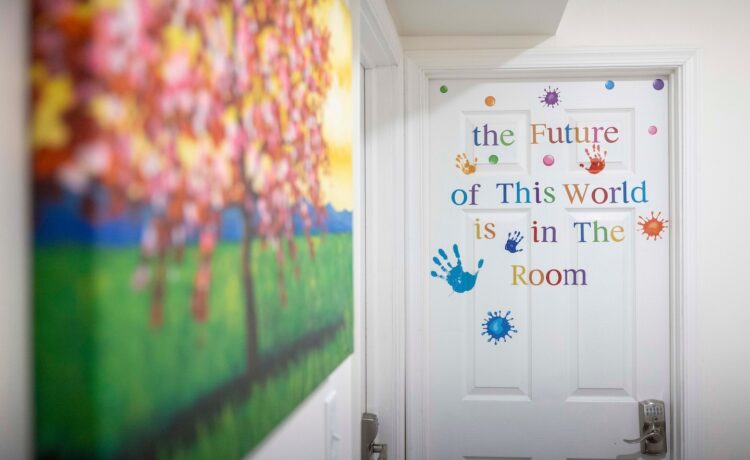“These private donations that we got were arrayed between longtime donors who stepped up to the plate and people who were introduced by the Washington Post article,” said Deborah Shore, founder and executive director of Sasha Bruce Youthwork, the nonprofit that runs Olaiya’s Cradle. “Obviously, the idea of losing this program really inspired a lot of people to do something about that.”
Leaders said that after the story was published last month, St. Augustine Catholic Church sent baby clothes and toys, and people sent letters with donations.
The program also got big-money contributions from new donors and official sources. The D.C. Council approved a budget this week that allocates about $200,000 in recurring funds to Olaiya’s Cradle for the next four years. Program leaders also said they received multiple one-time grants totaling $200,000, with $100,000 from the Community Partnership for the Prevention of Homelessness, $50,000 from Capitol One and $50,000 from Amazon, whose founder, Jeff Bezos, owns The Post.
In total, officials said they have raised $532,000 for next year — exceeding the federal funding they had lost. In March, the U.S. Department of Housing and Urban Development denied a request for $190,000 to continue funding Olaiya’s Cradle through HUD’s Continuum of Care program, which supports homelessness prevention efforts. While the program was eligible for grant funding, it didn’t score as high as other programs that had applied, according to a HUD spokesperson. Officials have said the program costs about $800,000 to maintain annually.
“When you have had as many challenges and storms in your life as many of these young people have, it’s very easy to develop a narrative that no one cares,” Shore said. “It makes a huge difference that they know that there is a community that stepped up.”
D.C. Council Chairman Phil Mendelson (D) said the funds for Olaiya’s Cradle in the council’s $21 billion budget for fiscal 2025 reflect a long-term commitment to the program.
“Kids, through public education, have the opportunity to break the cycle of poverty, but it’s hard for them to do that if at the same time they or their family is challenged with housing instability,” Mendelson said. “So if we want to turn the page with long-term thinking, then programs like Olaiya’s Cradle need to continue.”
Olaiya’s Cradle has received federal funding to support 18-to-24-year-old pregnant women and mothers experiencing homelessness since it opened in 1988, said Daniel Rico, the organization’s chief development officer.
The mothers, many of whom are Black single parents, can live in the transitional housing for up to two years and, on average, stay for about 21 months. During that time, they have access to counseling, career and educational development and assistance navigating social benefits. Since 2019, it has served 95 women and children, Rico said. Some of the mothers who had talked to The Post about the program’s financial uncertainty could not be reached this week, and one said they preferred not to comment to protect their privacy.
This program is personal for Rico, who experienced homelessness as a child. Rico said leaders are now brainstorming more long-lasting solutions for a stable funding source.
“We want to raise awareness about the unique needs of pregnant, parenting youth in the District, particularly those who are experiencing homelessness,” Rico said. “Because even though we might not see them, they’re out there and they need us. And they need programs just like Olaiya’s Cradle.”














